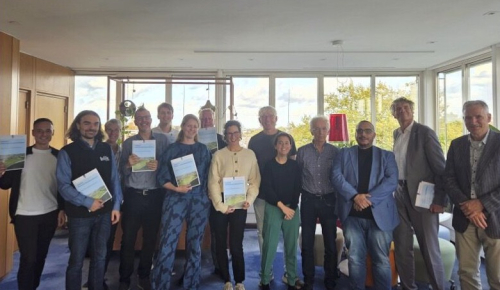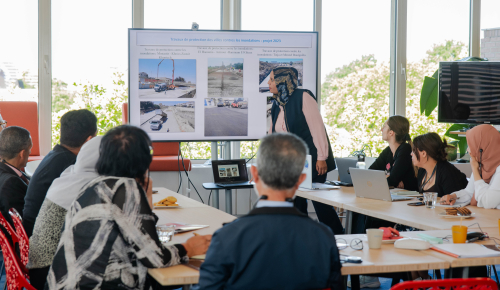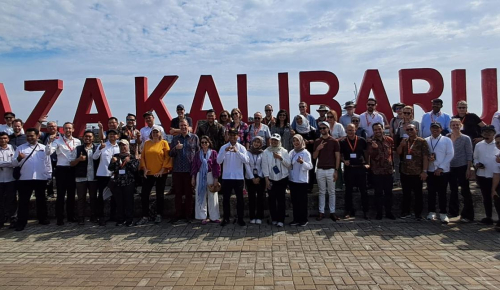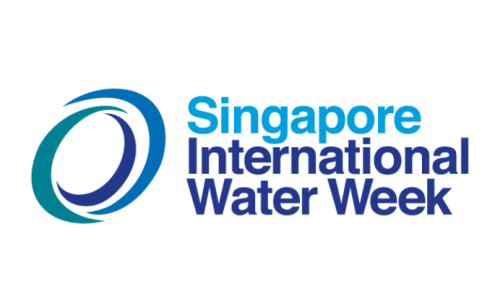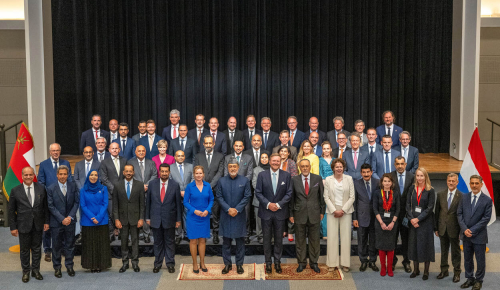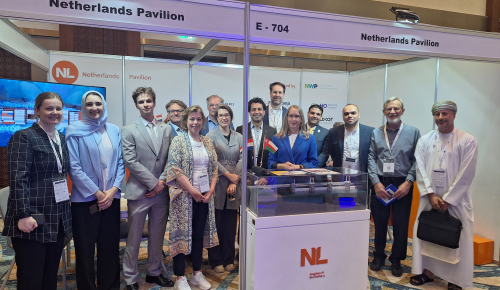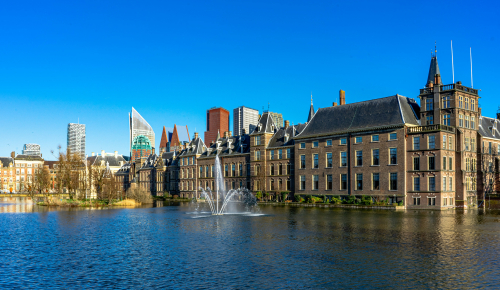Interview
24 February 2022Blue-Green City Dialogues: starting point for integrated flood risk management Balkan cities
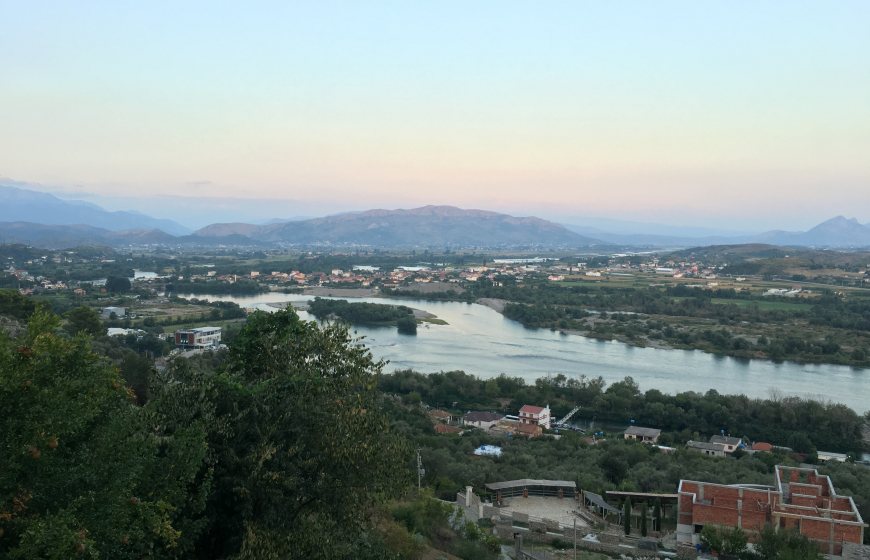
Three consortia connecting local stakeholders and Dutch water organisations have developed project ideas on applying smart and nature-based water solutions in Albania, Bosnia and Herzegovina, and Kosovo. This is the result of the Blue-Green City Dialogues organised by the Netherlands Water Partnership (NWP) and the Netherlands Enterprise Agency (RVO), in close cooperation with the local Dutch Embassies.
The Green Agenda for Western Balkans was developed as part of the EU Green Deal to facilitate the transition towards a circular economy by 2050. The agenda may unlock attractive opportunities for the Dutch water sector, for example when it comes to supporting cities' water challenges. In order to better position the sector, the Blue-Green City Dialogues were launched, supported by the Partners for Water programme, and with a contribution of the Top Sector Water & Maritime.
Demand-driven from the start
Darja Kragić Kok, Project Manager at NWP, explains that the Blue-Green City Dialogues initiative was demand driven from the start. "Based on local needs, we wanted to work towards concrete project development, while simultaneously mapping funding opportunities for these ideas. We shortlisted Balkan cities that experience challenges related to flooding that were interested in collaborating with the Dutch water sector. Then we reached out to these municipalities. We wanted to learn more about their concrete challenges, create a platform for cities and water experts to communicate, and work jointly towards project idea development. Local professionals at our Embassies in the region, knowing local markets' ins and outs, proved indispensable."
Creating project proposals
Jurre de Bok, Advisor Multilateral Development Banks for Team International Organisations at RVO: "Municipalities know what their problem is, but may find it challenging to translate this into convincing and bankable project proposals that qualify for financing by the national government, development banks, or investors. Our goal is to bring these parties together, in everyone's interest: the municipalities, the potential financiers, and the Dutch water sector. We polled potential consortium parties, who performed a quick scan for three cases, in preparation for formulating a feasible business case for project development. Hopefully, this next step will be taken in 2022."
Three municipalities
In Peja in Kosovo, a river runs through the city. The challenges are to link flood risk management to landscape quality and aesthetics, to provide space for industry and agriculture, and to ensure that housing plans are implemented resiliently. To this end, NWP members Royal HaskoningDHV and Cityförster created a consortium with local stakeholders.
Skhodra, an important historical city in Albania, faces flood risks in the city and downstream in the delta. NWP member Deltares, in collaboration with Cityförster and local experts, is exploring the possibilities of an integrated master plan.
For the city of Tešanj in Bosnia and Herzegovina, the existing early warning system needs to be extended to the smaller rivers. A consortium, with NWP member HKV in the lead, alongside Witteveen+Bos and stakeholders from the Municipality of Tešanj, aims to tackle this.
For Darja Kragić Kok, there is also a clear personal commitment: "Being an expat from the region, it is extra motivating for me to try and bring local and Dutch experts together and co-create sustainable and integrated water solutions that address real-life problems. It was great to facilitate the process and work on these ideas that can be part of the sustainable water management plans for the three municipalities."
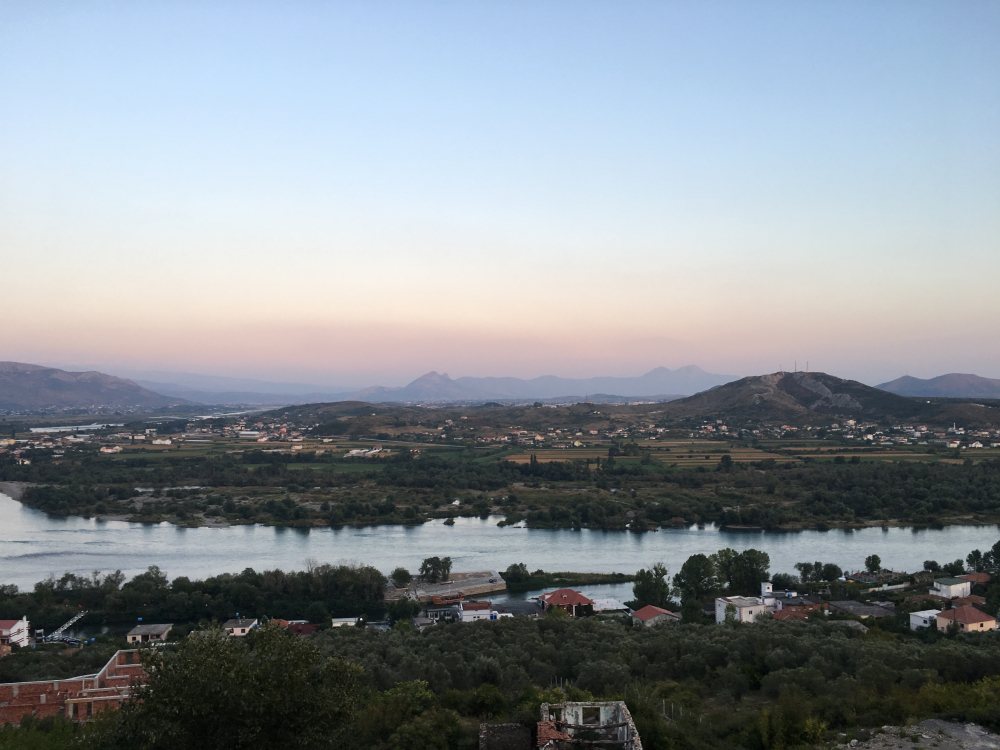
Buna river, Albania
A puzzle with opportunities
Parallel to this, the financial landscape was also mapped out, Jurre de Bok explains: "Orchard Finance has mapped for each country which programmes are already underway and which important donors are currently active; international financial institutions as well as bilateral projects between the countries of the Western Balkans and a whole list of other countries. This created an overall picture that offers guidance to municipalities, the consortia, and future partners.
The coming period will show whether and under which conditions external donors are willing to step in and enable further development. Municipalities must be in the lead, that is critical – otherwise projects simply cannot be successful. Consortia must therefore maintain a warm relationship with the municipalities involved. It's quite a puzzle, there are no guarantees yet. But we have laid a foundation that definitely offers opportunities."
Towards scaling up
Darja Kragić Kok gives an example: "The project idea developed with the Municipality of Tešanj in Bosnia and Herzegovina shows what can be achieved, as this municipality is the smallest one participating in the Blue-Green City Dialogues, but with dedicated stakeholders who are pursuing better living conditions for their citizens. In addition, Tešanj shares similar challenges with other municipalities in the region: flash floods from smaller rivers and streams. Therefore, the solutions we are working on could be scaled to other cities.
The whole initiative Blue-Green City Dialogues is an ongoing process, that requires continuous communication between all parties involved. We are looking forward to reaching out to more cities, and to get more Dutch organisations involved, based on what we have accomplished so far on a modest but very promising scale."
Featured NWP members: HKV, Witteveen + Bos , CITYFÖRSTER, Deltares, Haskoning

